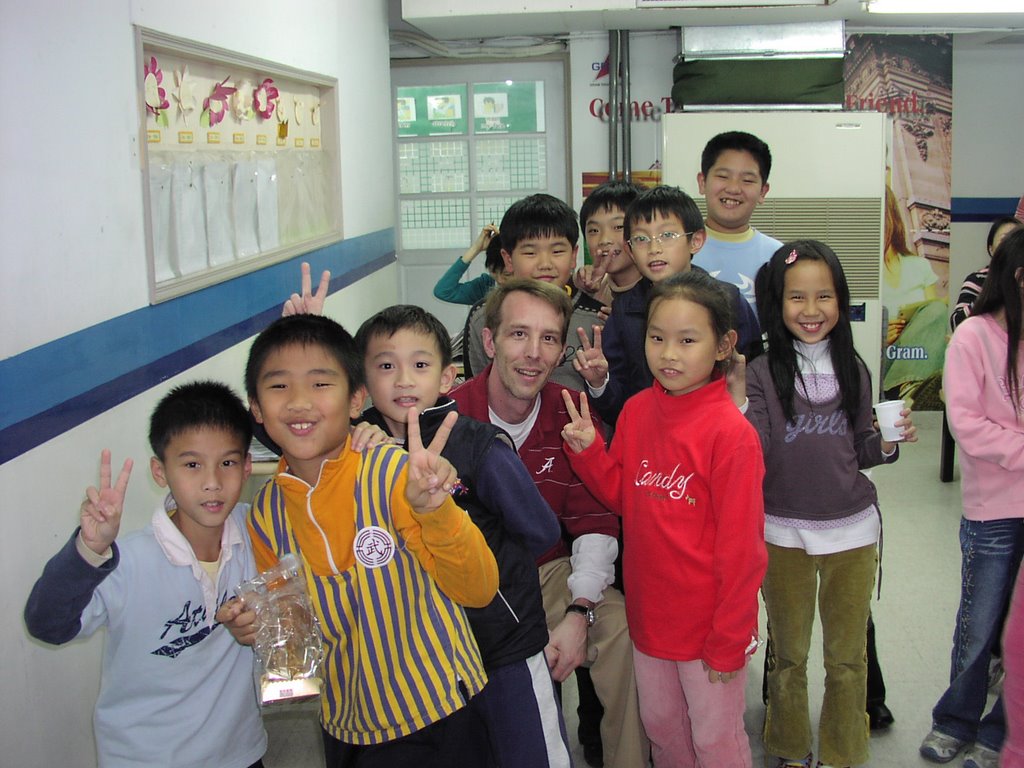Hope, the newly appointed school director, is awesome. She has done a terrific job of decorating the office and making it a warmer, more friendly atmosphere. She was happy to hear that I was getting my kids to help decorate. She came up with the idea of making a Christmas case with all of the kids creations. She is great. Her efforts are inspiring to everyone in the office, I really enjoy working for her.
I had a few of my classes color a variety of Christmas-related pictures and make some personalized reindeer. The reindeer were particularly fun because they had to trace their feet and hands to make the shapes.
 This is the case. It's located in the main hall for everyone to see. The kids are proud of their work.
This is the case. It's located in the main hall for everyone to see. The kids are proud of their work. A close-up of some of the excellent work. It's fun to let them create stuff like this. The life of a student here in Taiwan is for too rigid. It leaves very little room for creativity. The reindeer head is a cut-out of their shoe, and the ears are the tracing of their hands...I think they are cute. Notice the picture on the left, "Merry Christamas"...lol.
A close-up of some of the excellent work. It's fun to let them create stuff like this. The life of a student here in Taiwan is for too rigid. It leaves very little room for creativity. The reindeer head is a cut-out of their shoe, and the ears are the tracing of their hands...I think they are cute. Notice the picture on the left, "Merry Christamas"...lol. My kindergarten class pointing out their artwork. Little Monica in the front is adorable. The two boys are brothers who recently returned from living in the U.S. for a few years. Their English is excellent. Not sure why they are in this class but I enjoy teaching them.
My kindergarten class pointing out their artwork. Little Monica in the front is adorable. The two boys are brothers who recently returned from living in the U.S. for a few years. Their English is excellent. Not sure why they are in this class but I enjoy teaching them. Some of the kids from my conversation-based class. These kids work really hard. I challenge them every class and they have done really well. Sophia, in the front, is pointing to her Thanksgiving picture. I decided to include the turkey pages because not all of them had completed the Christmas artwork.
Some of the kids from my conversation-based class. These kids work really hard. I challenge them every class and they have done really well. Sophia, in the front, is pointing to her Thanksgiving picture. I decided to include the turkey pages because not all of them had completed the Christmas artwork. The office tree. It's not extravagant, but Hope does really well with limited stuff to work with.
The office tree. It's not extravagant, but Hope does really well with limited stuff to work with.








